 Petzlover
Petzlover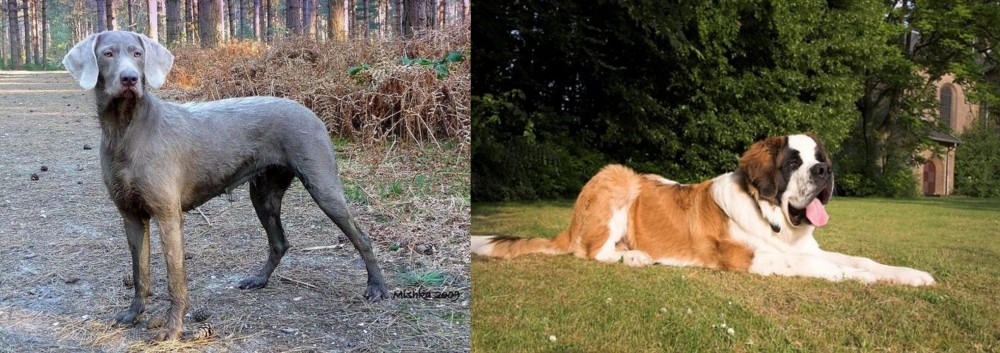 Slovensky Hrubosrsty Stavac is originated from Slovakia but St. Bernard is originated from Switzerland. Both Slovensky Hrubosrsty Stavac and St. Bernard are having almost same height. Slovensky Hrubosrsty Stavac may weigh 55 kg / 121 pounds lesser than St. Bernard. Slovensky Hrubosrsty Stavac may live 4 years more than St. Bernard. Slovensky Hrubosrsty Stavac may have less litter size than St. Bernard. Slovensky Hrubosrsty Stavac requires Low Maintenance. But St. Bernard requires High Maintenance
Slovensky Hrubosrsty Stavac is originated from Slovakia but St. Bernard is originated from Switzerland. Both Slovensky Hrubosrsty Stavac and St. Bernard are having almost same height. Slovensky Hrubosrsty Stavac may weigh 55 kg / 121 pounds lesser than St. Bernard. Slovensky Hrubosrsty Stavac may live 4 years more than St. Bernard. Slovensky Hrubosrsty Stavac may have less litter size than St. Bernard. Slovensky Hrubosrsty Stavac requires Low Maintenance. But St. Bernard requires High Maintenance
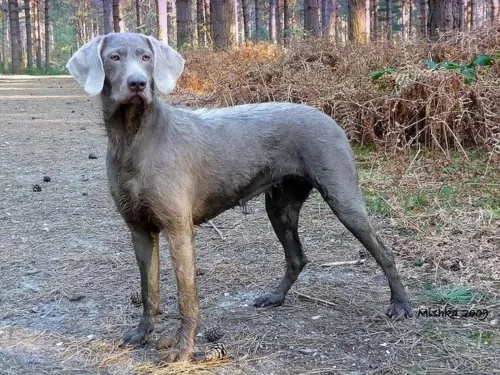 Breeding of the Slovak Hruborsty Stavac, fondly referred to as the SHS began around the 1940s.
Breeding of the Slovak Hruborsty Stavac, fondly referred to as the SHS began around the 1940s.
There were some dog lovers who were interested in crossing the coarse haired dogs of Slovakia with the German Wirehaired, the Czech blower and the Weimaraner. The outcome was a rough-haired kind of Weimaraner-looking dog.
While hunters and hunting were quite common in Slovakia, the breed became rather rare with the wars when hunting became less, but the dog was reconstructed by breeders, but is still rare outside Slovakia.
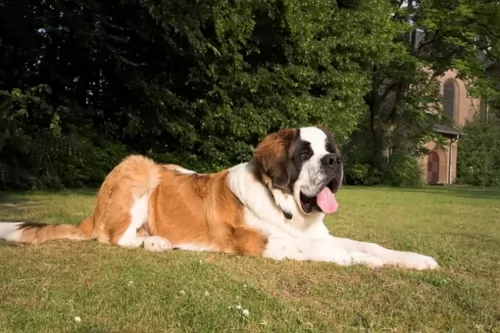 The St Bernard breed was once called the Alpine Cattle Dogs or the Alpine Mountain Dogs. They have always been farm dogs and mountain dogs in the French and Swiss Alps. They come from the border land of Switzerland and France. They were herding dogs, hunting, search and rescue, watchdogs and draft dogs.
The St Bernard breed was once called the Alpine Cattle Dogs or the Alpine Mountain Dogs. They have always been farm dogs and mountain dogs in the French and Swiss Alps. They come from the border land of Switzerland and France. They were herding dogs, hunting, search and rescue, watchdogs and draft dogs.
Their ancestors are considered to include the Sennenhunds and molosser breeds that came to the Alps with the ancient Romans. There are four Sennenhund breeds that are believed to have contributed to the original St. Bernard. These included the Greater Swiss Mountain Dog (Grosser Schweizer Sennenhund), the Appenzeller (Appenzeller Sennenhund), the Bernese Mountain Dog (Berner Sennenhund) and the Entlebucher Mountain Dog (Entlebucher Sennenhund) Today the St. Bernard is considered a Molossoid breed.
The first we know of the St. Bernard in any written records was in 1707 at the Great St. Bernard Pass and Great St. Bernard Hospice run by monks. There were found paintings of the dogs dating back into the late 1600’s. It is told that Barry saved upward of 100 people in the St. Bernard pass, and it is from these stories that the dogs gained their snow rescue reputation.
The St. Bernard of that time did not look like the St. Bernard does today as there was much crossbreeding. Many dogs dies during rescues in the avalanches of the mid 1800’s and so they Saint was crossed with the Newfoundland to preserve the breed. You can today see the resemblance in the build and looks of the two breeds. This cross brought about the long haired St. Bernard whose fur was too heavy for rescues.
The St. Bernards of mountain rescue fame were only about the size of a German Shepherd dog and were short haired. After crossing with the Newfoundland and moving into clubs and dogs shows, they have been bred to be much larger. Before the stud book was closed, it is thought that many larger breeds such as the Greater Swiss Mountain Dog, the English Mastiff, the Tibetan Mastiff, the Rottweiler, the Great Pyrenees, the English Bulldog, the Great Dane, the Bernese Mountain Dog, the Boxer and the Caucasian Oycharka all contributed to today’s St. Bernard.
In 1884 The Swiss St. Bernard Club was founded and the breed entered the Swiss Stud book as its first entry in 1884. It was 1888 when the standard was approved and the breed became the national dog of Switzerland. Before the name St. Bernard came to be common, these dogs might be called, Barry Dogs, Alepnmastiff, Noble Steeds or Saint Dogs.
The dogs came to England in the early 1800s and to the United States soon after. They were recognized by the European kennel clubs first and by the early 1900’s they were the most popular breed in the AKC.
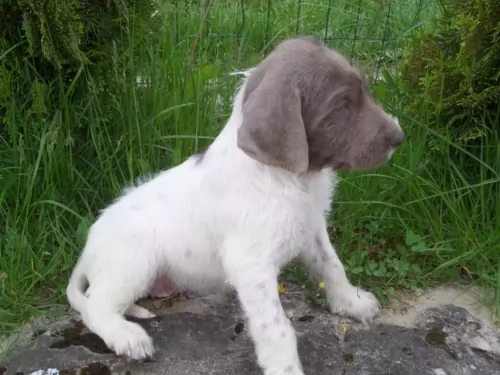 The dog is fairly large, standing at between 62 and 68cm in height and weighs 25 - 35kg. The coat is fairly coarse and dense and is a grey/silver shade with a touch of brown.
The dog is fairly large, standing at between 62 and 68cm in height and weighs 25 - 35kg. The coat is fairly coarse and dense and is a grey/silver shade with a touch of brown.
There is quite a bit of hair around the face. The ears are medium length and floppy and the tail is mostly docked to half its length but can be left long as well. The tail is set high and carried vertically and can be well feathered. The eyes are almond-shaped, and the dog has an intelligent appearance to him.
The Slovensky Hruborsty Stavac is a sharp dog, making it easy to have him trained and socialized. He is such a friendly, social dog, getting on well with all family members and loving to get involved with the games of the children.
There is no aggression in this dog and when you provide him with the exercise that he craves, he is loyal, gentle and loving, getting on well with other dogs as well.
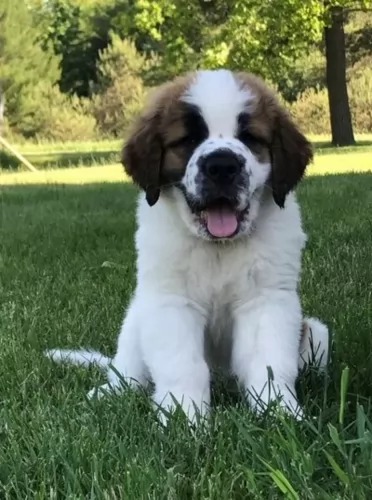 Today’s St. Bernard is not a large dog, he is a giant dog. Weighing in at 140-200 pounds and standing 28 to 35 inches tall, he is a lot of dog. Bred with mastiffs and large mountain dogs, they have proportional and powerful build. They are strong, sturdy and well muscled. They have either a smooth or rough (short or long) coat. Their eyes are brown or occasionally blue. They have tight lids, and square heads and muzzles.
Today’s St. Bernard is not a large dog, he is a giant dog. Weighing in at 140-200 pounds and standing 28 to 35 inches tall, he is a lot of dog. Bred with mastiffs and large mountain dogs, they have proportional and powerful build. They are strong, sturdy and well muscled. They have either a smooth or rough (short or long) coat. Their eyes are brown or occasionally blue. They have tight lids, and square heads and muzzles.
There are two coat types called smooth and rough, or short and long. The smooth shorter coat is tough, flat and close against the body and the long, rough coat is dense, wavy and heavy around the legs, neck and ruff. Both types have long tails that hang low and are heavy. Saints are known to slobber, drool and snore.
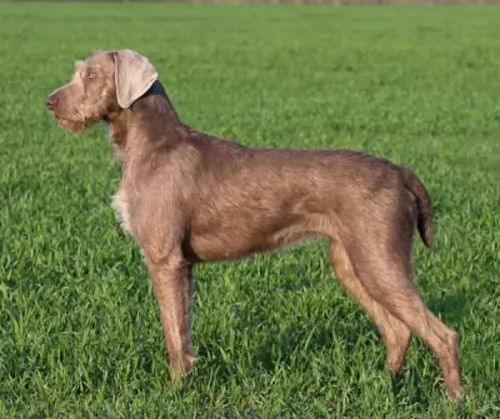 The Slovensky Hruborsty Stavac is such a bouncy, amicable pet, full of energy. He may appear to be confident and full of the joys but he secretly can’t stand it when his human family don’t include him in everything. He can actually suffer with separation anxiety.
The Slovensky Hruborsty Stavac is such a bouncy, amicable pet, full of energy. He may appear to be confident and full of the joys but he secretly can’t stand it when his human family don’t include him in everything. He can actually suffer with separation anxiety.
He is an athletic dog and will require lots of exercise – walks, hikes, ball games and running off his leash.
He is quiet but strong-willed and will respond well to a strong, firm, consistent, kind owner.
These dogs make the most awesome pets and you can either find one from a rescue group or find a puppy from a reputable breeder. Whatever you decide on, the Slovensky Hruborsty Stavac makes an extraordinary pet.
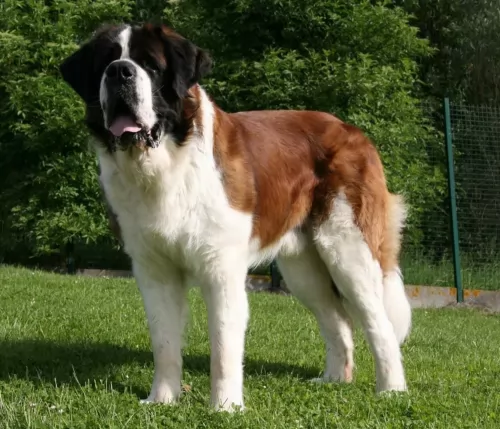 3.Adaptability no - these are giant dogs that need a lot of room. A large fenced yard or farm is best. They won’t do well in an apartment. They need exercise every day and loping around a yard is very good for them. They love to play in the snow, carry a backpack or pull a cart. They love to have a “job”
3.Adaptability no - these are giant dogs that need a lot of room. A large fenced yard or farm is best. They won’t do well in an apartment. They need exercise every day and loping around a yard is very good for them. They love to play in the snow, carry a backpack or pull a cart. They love to have a “job”
4.Learning ability – They are smart and highly trainable if motivated. They may appear lazy but they are just laid back and need a motivation.
 There are always some illnesses that your dog might get but which isn’t likely with your pet as these are healthy dogs.
There are always some illnesses that your dog might get but which isn’t likely with your pet as these are healthy dogs.
Dogs can die within a few hours if not treated with this ailment. Bloat is a condition where the stomach twists and fills with gas. The stomach is swollen and the gas can cause breathing problems because it puts pressure on the diaphragm. If you suspect that your dog has bloat, he should be rushed to the vet as soon as possible.
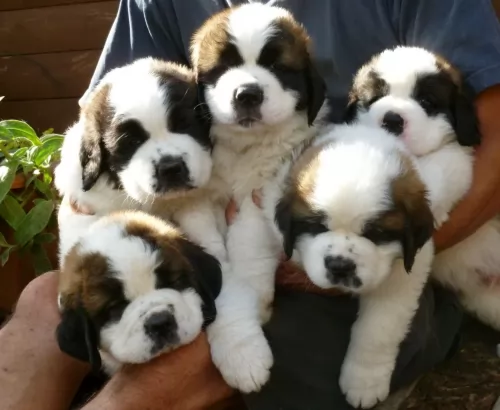 The first problem this breed faces is how fast they grow and gain weight. This can lead to serious health issues if not controlled. Their bones can be damaged by this excessively fast rate of growth. Other issues facing the breed include:
The first problem this breed faces is how fast they grow and gain weight. This can lead to serious health issues if not controlled. Their bones can be damaged by this excessively fast rate of growth. Other issues facing the breed include:
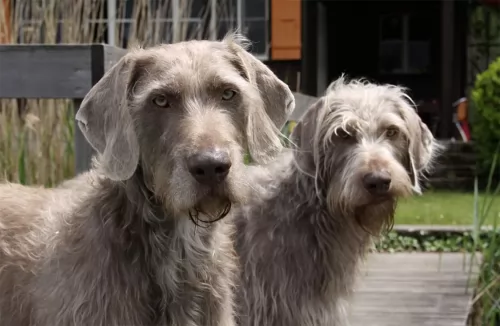 Before you bring your pet home, dog-proof your house. It won’t be fair to leave tempting, chewy things lying around and expect your pet to not be interested in them. Also, keep dangerous chemicals out of reach of your pet.
Before you bring your pet home, dog-proof your house. It won’t be fair to leave tempting, chewy things lying around and expect your pet to not be interested in them. Also, keep dangerous chemicals out of reach of your pet.
Prepare for your pet beforehand and have feeding- and water bowls ready as well as a nice basket or some other sleeping equipment available for him.
If you’re bringing an adult rescue dog home, try to feed him the same kind of food he was already eating, as too many changes can upset him. When he settles down, you can move over to other food. Keeping his food consistent can avoid digestive problems.
If you opt to feed him one of the commercially manufactured dog foods, make sure its the best quality as some of them are bad, filled with things such as colorants, preservatives and fillers. Try and give him some homemade food which you can add into the dry kibble twice a week. Boiled chicken, brown rice or pasta and spinach, sweet potatoes and carrots all boiled slowly together will delight your pet. Chop it all up and your pet will look so forward to this. Dogs thrive on simple, consistent meals like this. Provide water at all times.
The amount of exercise any dog needs is dependent on age, size and energy levels. Because the Slovensky Hruborsty Stavac is an energetic breed, he will need a good dose of exercise. If you have a puppy, avoid strenuous exercise as this can damage the soft, developing bones and joints. As well as walks and ball games, mental stimulation is also important for this dog. Consider buying some puzzle toys or feeders for your pet.
Keep up to date with all your dog’s immunizations and get your pet to the vet as soon as he is sick. There are some illnesses such as bloat which can claim your pet’s life in just a few hours if not attended to.
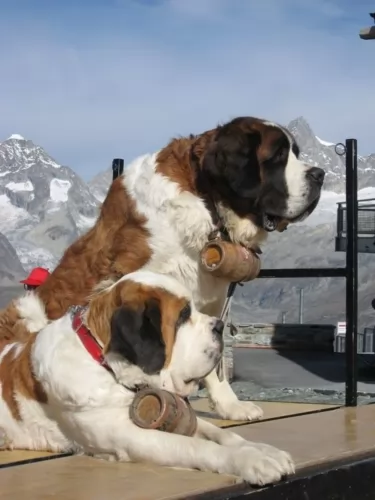 1.Feeding the puppy – You want to control their growth. Do not overfeed, and make sure they exercise but not too much. Feed a high quality large breed puppy food 3-4 X a day in small amounts.
1.Feeding the puppy – You want to control their growth. Do not overfeed, and make sure they exercise but not too much. Feed a high quality large breed puppy food 3-4 X a day in small amounts.
2.Feeding the adult – The problem you face with he adult St. Bernard is the potential for Bloat. Don’t over feed. Don’t feed before or after strenuous exercise. Feed 2-3 X a day in smaller amounts to prevent Bloat. Feed a high quality breed specific food if possible or an extra large breed formula.
4. Games and Exercises They need exercise but not as much as you might think. The St. Bernard is a laid back lumbering character so don’t over exercise her. They enjoy weight and cart pulling but they are not athletes who enjoy frisbee or agility. Search and rescue trials and tracking trials are perfect athletic endeavors for them.